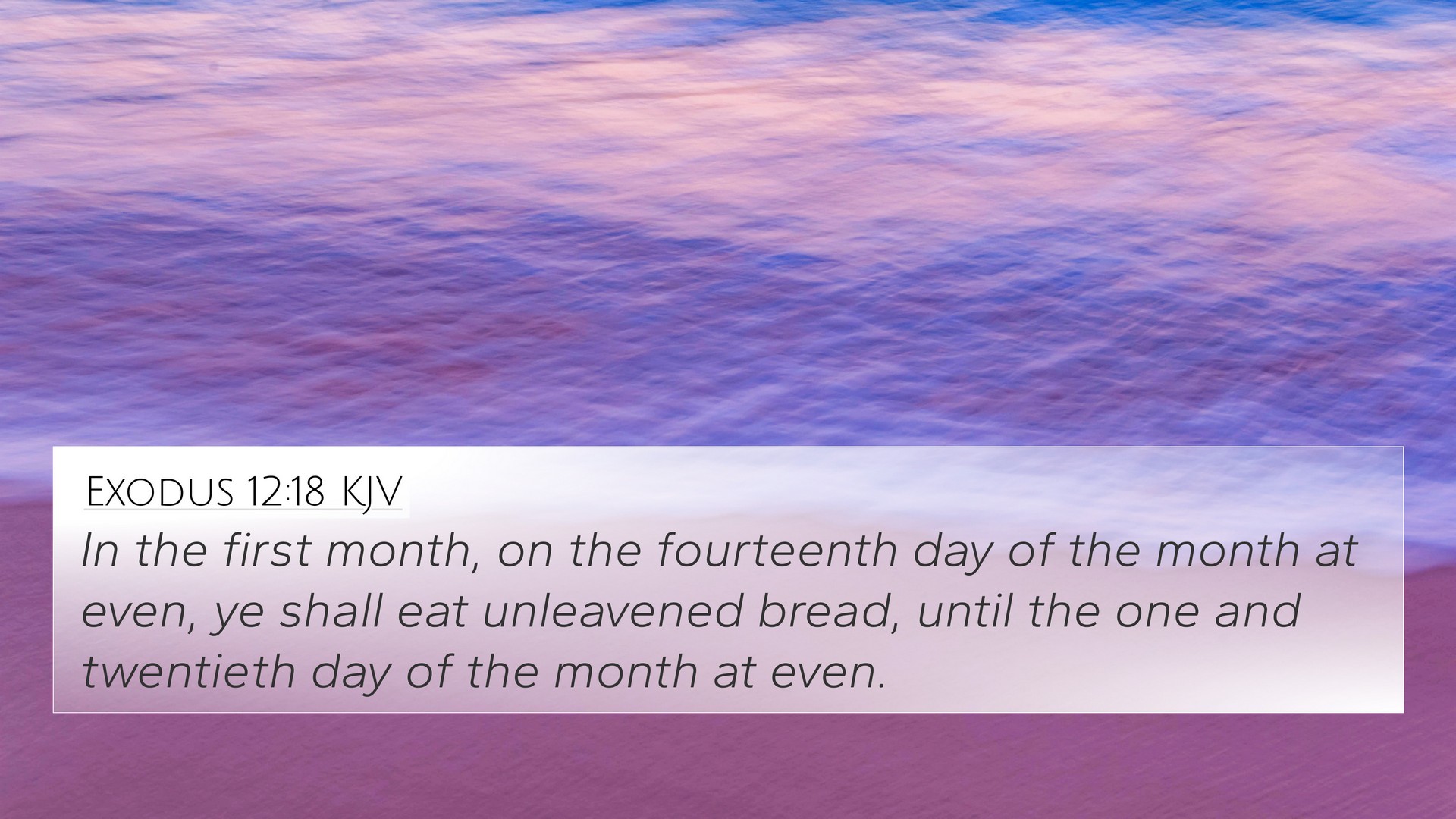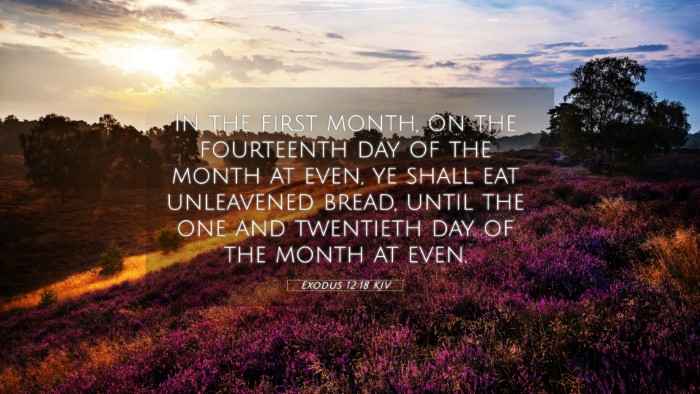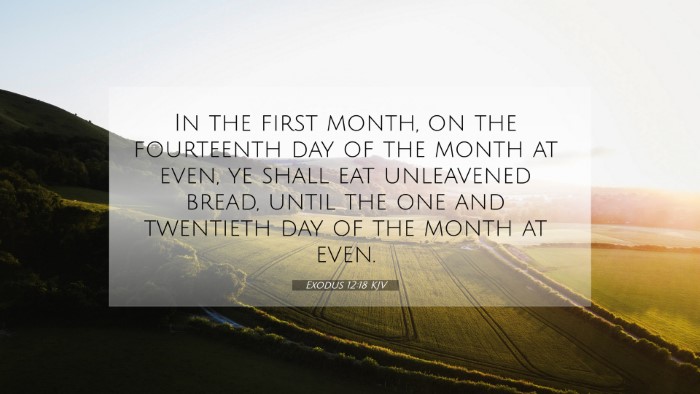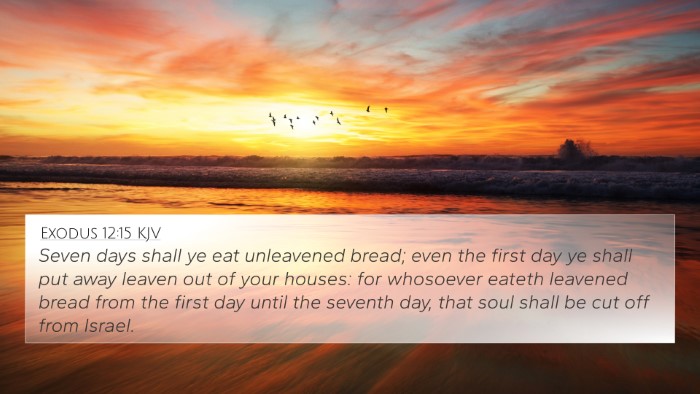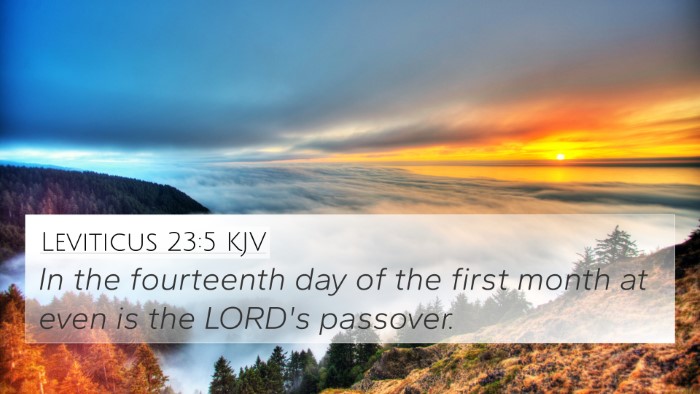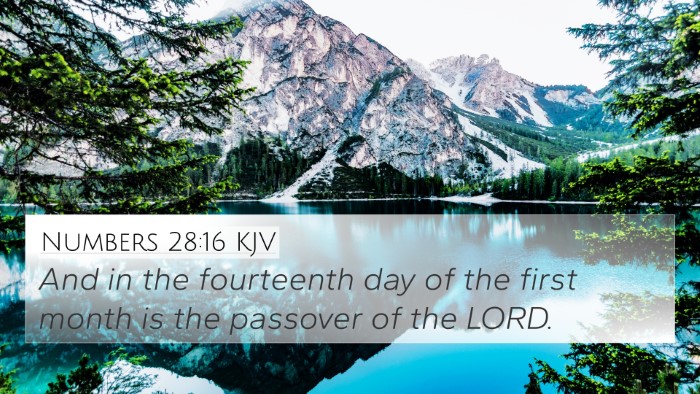Understanding Exodus 12:18
Exodus 12:18 reads:
"In the first month, on the fourteenth day of the month at evening, you shall eat unleavened bread until the twenty-first day of the month at evening." (Exodus 12:18, ESV)
This verse is a part of the instructions concerning the observance of the Passover in Israel. It establishes important guidelines for the Israelites on how to commemorate the event of their deliverance from Egypt.
Summary of Context and Meaning
Exodus 12:18 occurs within a critical narrative about Israel's liberation from slavery in Egypt. This particular instruction comes during the final plague, where God prepares to execute judgment on Egypt, signaling the imminent liberation of His people.
Key Insights from Commentaries
- Matthew Henry:
Henry highlights the significance of the Passover and its institution, noting that the unleavened bread represents purity and quickness in the act of leaving Egypt. The instructions conveyed in this verse emphasize the necessity of obedience and remembrance in the life of the Israelites.
- Albert Barnes:
Barnes points out that the specific mention of eating unleavened bread for a week symbolizes the haste with which the Israelites had to leave Egypt. The seven-day observance also corresponds to the time of purification and repentance.
- Adam Clarke:
Clarke explains that unleavened bread plays a vital role in the commemorative aspects of the Passover, emphasizing both the historical and spiritual significance of the event. He notes that the leaven is often symbolically connected with sin and corruptibility.
Cross-References Related to Exodus 12:18
Understanding Exodus 12:18 is enhanced through cross-referencing, linking themes of deliverance, divine instructions, and practices associated with holiness in both the Old and New Testament. Here are important biblical references that connect with this verse:
- Exodus 12:15: "Seven days you shall eat unleavened bread. On the first day you shall remove leaven out of your houses..." - Expands on the instructions about unleavened bread.
- 1 Corinthians 5:7-8: "Cleanse out the old leaven that you may be a new lump..." - Paul relates the concepts of leaven and purity to Christian life.
- Matthew 26:17: "Now on the first day of unleavened bread the disciples came to Jesus, saying, 'Where will you have us prepare for you to eat the Passover?'" - This shows the continuity of the Passover theme in the New Testament.
- John 1:29: "Behold, the Lamb of God, who takes away the sin of the world!" - References the sacrificial system and connects to the Passover lamb.
- Leviticus 23:6: "And on the fifteenth day of the same month is the Feast of Unleavened Bread..." - Further elucidates the context and importance of this week-long observance.
- Hebrews 11:28: "By faith he kept the Passover and sprinkled the blood, so that the Destroyer of the firstborn might not touch them." - Affirmation of faith in God's deliverance connected to the Passover instruction.
- Luke 22:1: "Now the Feast of Unleavened Bread drew near, which is called the Passover." - Links the festival to the time of Jesus' crucifixion.
Thematic Connections
The narrative surrounding Exodus 12:18 reveals vital themes that resonate throughout the Bible:
- Deliverance: The Passover prefigures the ultimate deliverance through Christ.
- Obedience: Emphasizes the importance of following God's commandments for spiritual and communal identity.
- Faith and Preservation: The faith of the Israelites in applying the blood of the lamb as instructed shows God's protection and mercy.
Conclusion
Exodus 12:18 is an evocative reminder of God's mighty deliverance and the stringent, yet meaningful, observances instituted for His people. Through cross-references and thematic study, believers are encouraged to explore the depth of the scriptures and how these connections enhance our understanding of God's unfolding redemptive plan throughout history.
Tools for Further Study
- Bible concordance for locating specific terms and themes.
- Bible reference resources to assist in deeper study.
- Cross-reference guides for navigating scripture connections.
